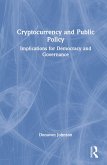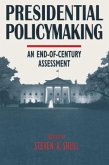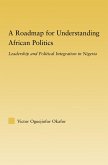During the last decades of the twentieth century a seemingly endless stream of political scandals and policy fiascoes burst into the open in most Western countries. Each was characterized by intense politicization of government performance following allegations of ineffectiveness, mismanagement, and misconduct in public programs and projects. Their scope was large, encompassing the full range of contemporary governance from defense to social security policy. Their cumulative impact has been to undermine the legitimacy of established institutions and modes of policymaking. This study tries to make sense of the rise of these policy fiascoes. Adapting an interpretive mode of policy analysis, it shows in great detail how not only "partisan" but also "scientific" discourse on policy events contains many biases that promote (or prevent) them being labelled as "fiascoes". These biases are not random occurrences: they reflect deep-seated views about the nature and standards of good governance, as well as certain epistemological commitments about the nature and role of science and knowledge in policymaking.
Hinweis: Dieser Artikel kann nur an eine deutsche Lieferadresse ausgeliefert werden.
Hinweis: Dieser Artikel kann nur an eine deutsche Lieferadresse ausgeliefert werden.








